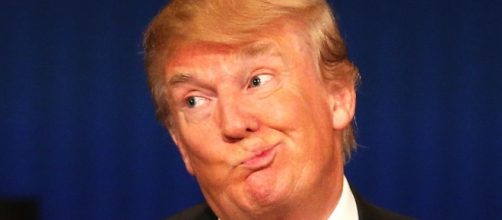Yesterday, President Donald Trump aimed to shore up his ties with the American working class by signing the “Buy American, Hire American” executive order. As an executive order, the effort lacks a lot of “teeth” but clearly signals the Administration’s views on a variety of issues, including visas and free trade deals. But can such half measures really shore up support, and will they actually have any impact on policies, or the administration?
The order aims to shore up visa loopholes that allow American firms to hire foreign individuals, often at a fraction of the price of American workers.
It also aims to enforce limits on foreign contractors bidding on American federal government projects, and to reexamine free trade deals. The executive order comes after Trump offered tough anti-trade rhetoric on the campaign trail.
Trump desperate to woo base
Trump’s presidential election victory was largely the result of his ability to flip Wisconsin, Michigan, and Pennsylvania by wooing blue collar, white votes. The “Buy American, Hire American” order appears to be aimed directly at those supporters. As an executive order, actual policy changes won’t be wide sweeping, but the policies do hint at the intent of the President.
With Trump’s approval ratings sinking, shoring up his base is becoming a must.
Trump’s approval ratings are historically bad, having dropped below 40%. With the 2018 election season nearly upon us, GOP elected officials and strategists are worrying about extensive losses. Already, special elections in conservative districts in Georgia and Kansas have been far closer than usual.
Problem is, Trump currently lacks support in Congress, so wide sweeping changes are out of the question. Executive orders have limited impact and scope, and as Trump already found out with his immigration ban, if he tries to overstep boundaries, courts can and will block his moves. Trump's proposed "America First" policies are going to have limited impact and are mostly for show.
H-1B visa program comes under fire
Perhaps the biggest target of the “Buy American, Hire American” policy is the H-1B visa program. This visa program allows employers to easily obtain visas for workers with highly specialized knowledge and skills. For example, if Oracle is having trouble finding programmers who can code in Java, but has found willing employees from India, it could “import” an employee and apply for the H-1B Visa.
The idea behind the H-1B visa program isn’t to replace American workers, but instead to supplement the workforce when no Americans are available with said skills. Problem is, many American employees, analysts, and experts argue that the H1-B program is frequently used to ship in cheaper employees to replace American employees and undercut the domestic workforce.
Yet most of the jobs allegedly being lost due to H-1B aren't the jobs held by blue collar voters across the Rust Belt. If anyone is losing out, it's IT staff and similar people in tech Mecca's like Silicon Valley. Even H-1B reform is unlikely to woo many of these voters to Trump's side.
Free Trade deals to be reviewed
All existing free trade deals are also to be reviewed and analyzed for their impact on trade, and specifically “fairness and reciprocity." NAFTA wasn’t specifically cited by the executive order, which instead focused on “free trade” deals. However, administration officials have confirmed that NAFTA will be one of the deals to be analyzed.
President Trump has lambasted NAFTA in the past, claiming that it was a bad deal for America.
Trump has previously stated that he would demand “big changes," or else would scrape the deal. Yet Trump's move to "review" the deals demonstrates the reality. These deals can't and won't simply be tossed aside, especially without Congressional support.
Instead, the administration will be limited to studying the deals, and perhaps being able to garner support among Congress, or press for small concessions from Mexico or Canada. Yet, with Trump having already ticked off Mexico, and enjoying little support in Canada, the likelihood of concessions is small.

